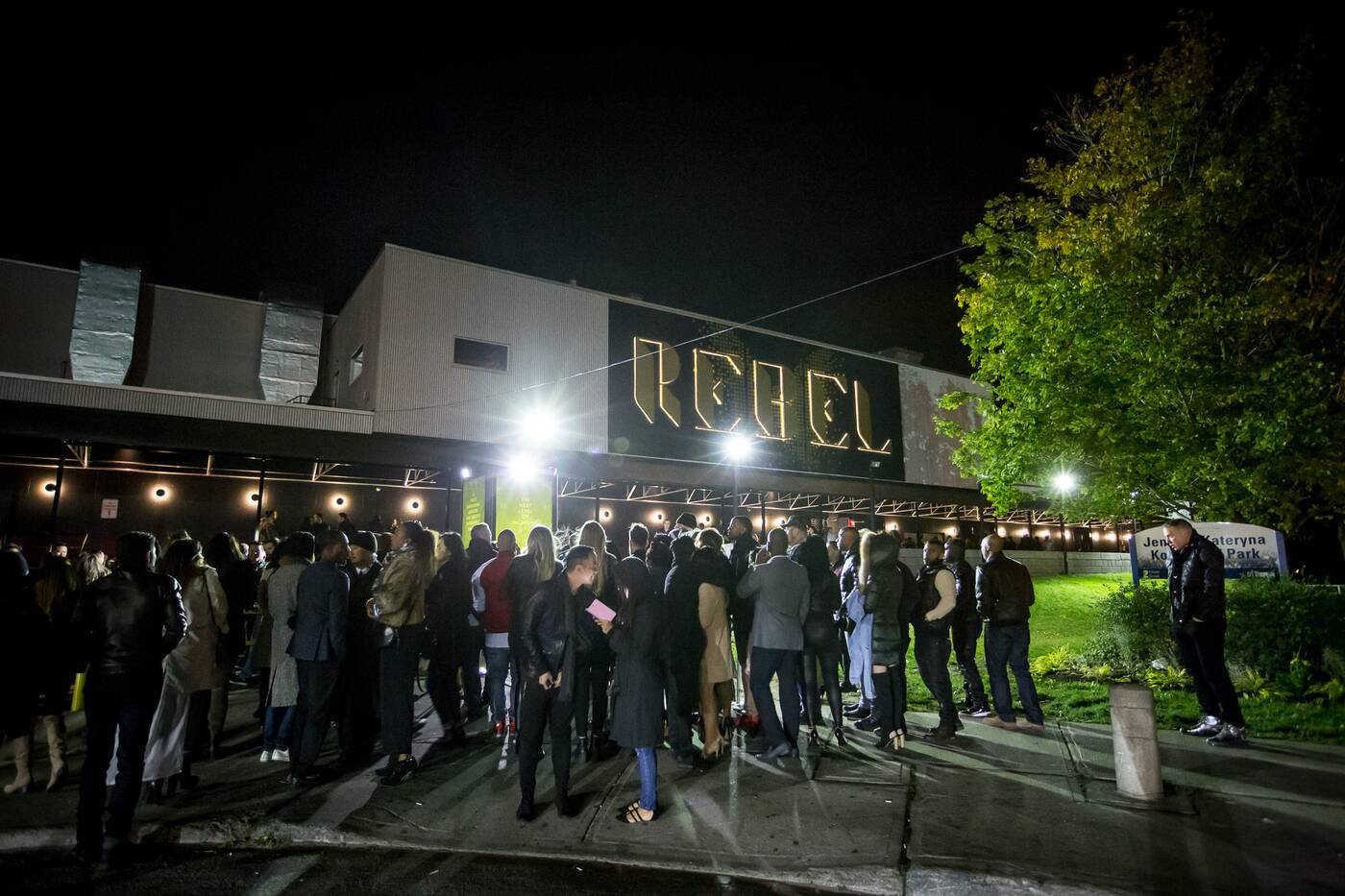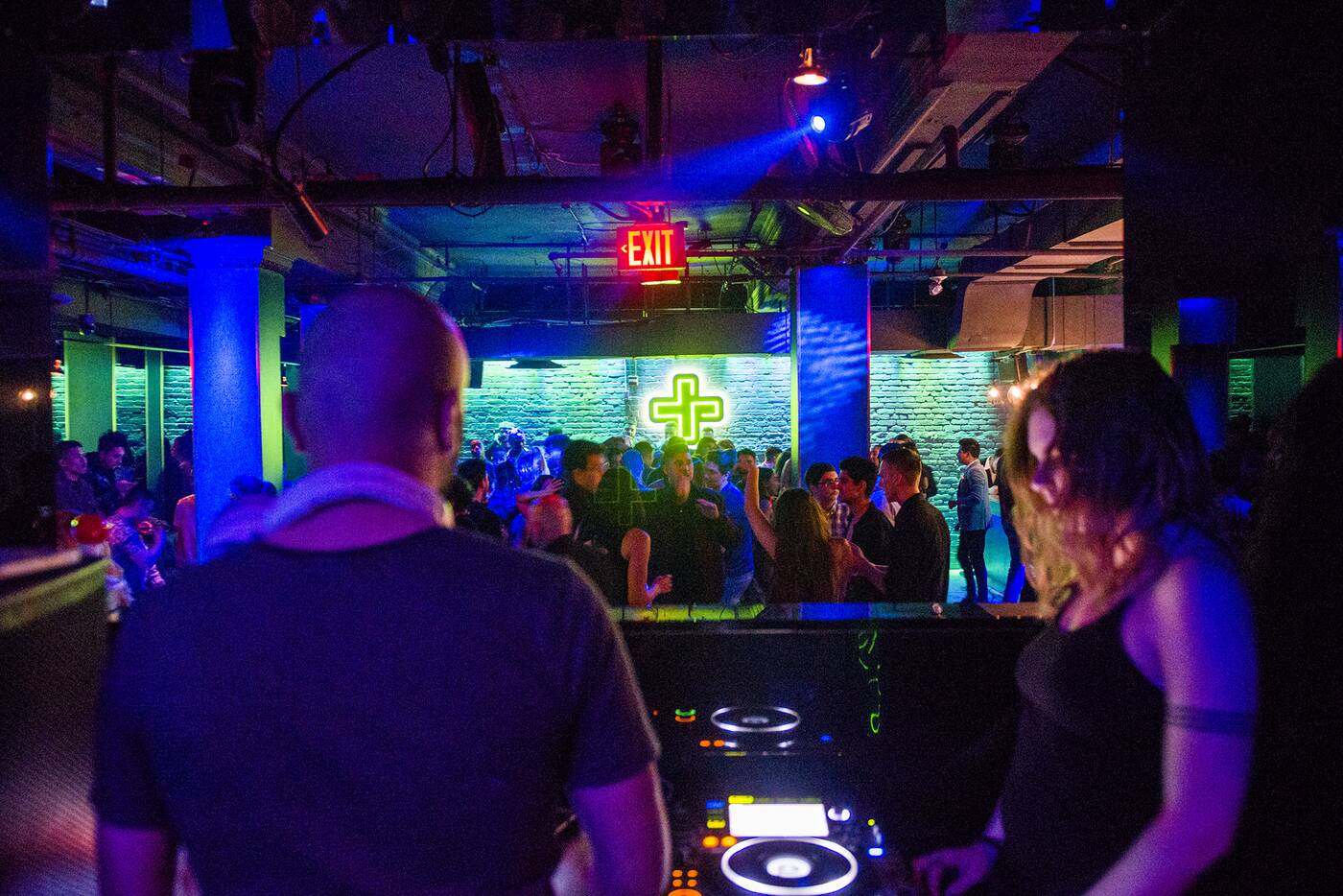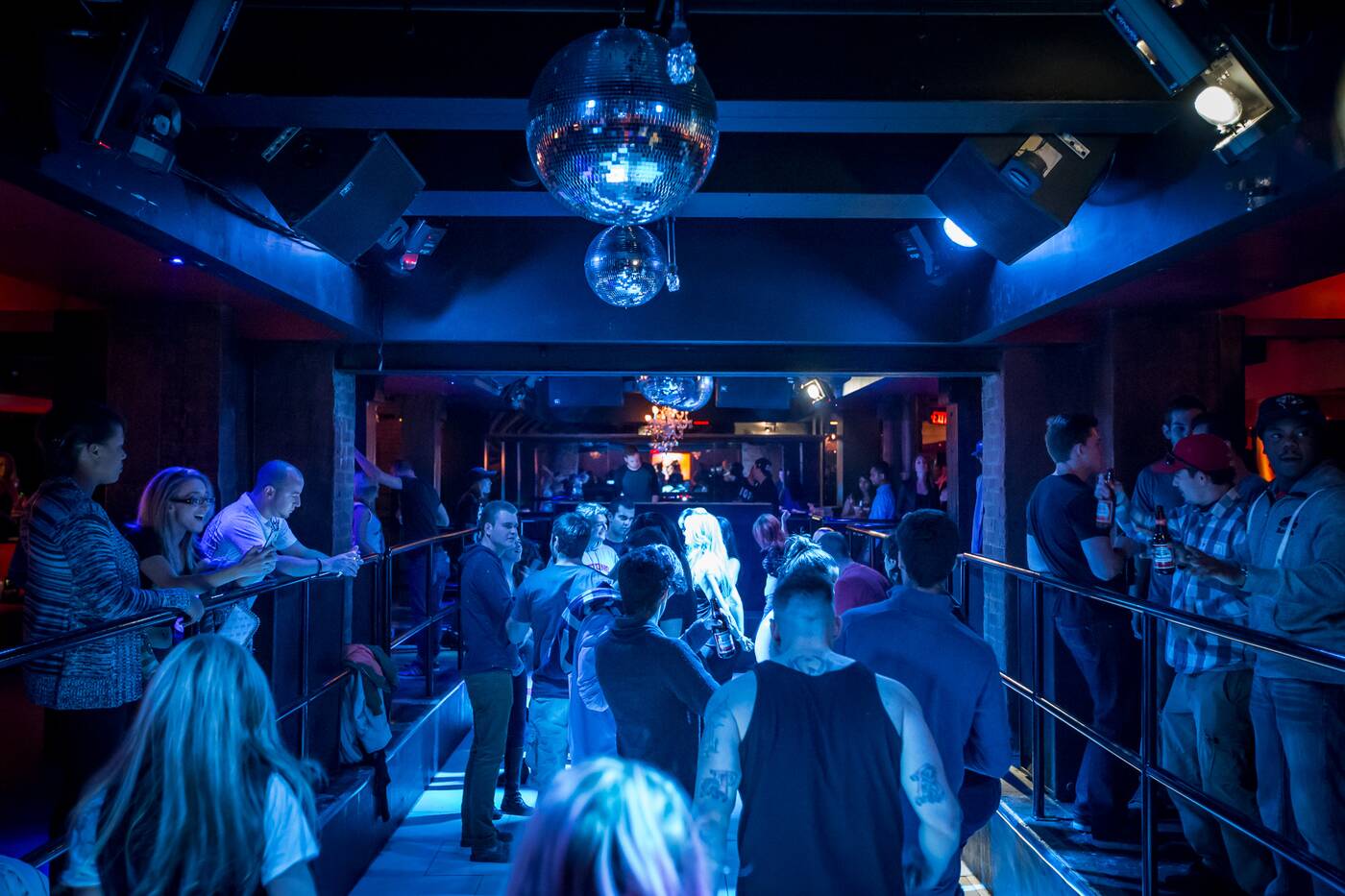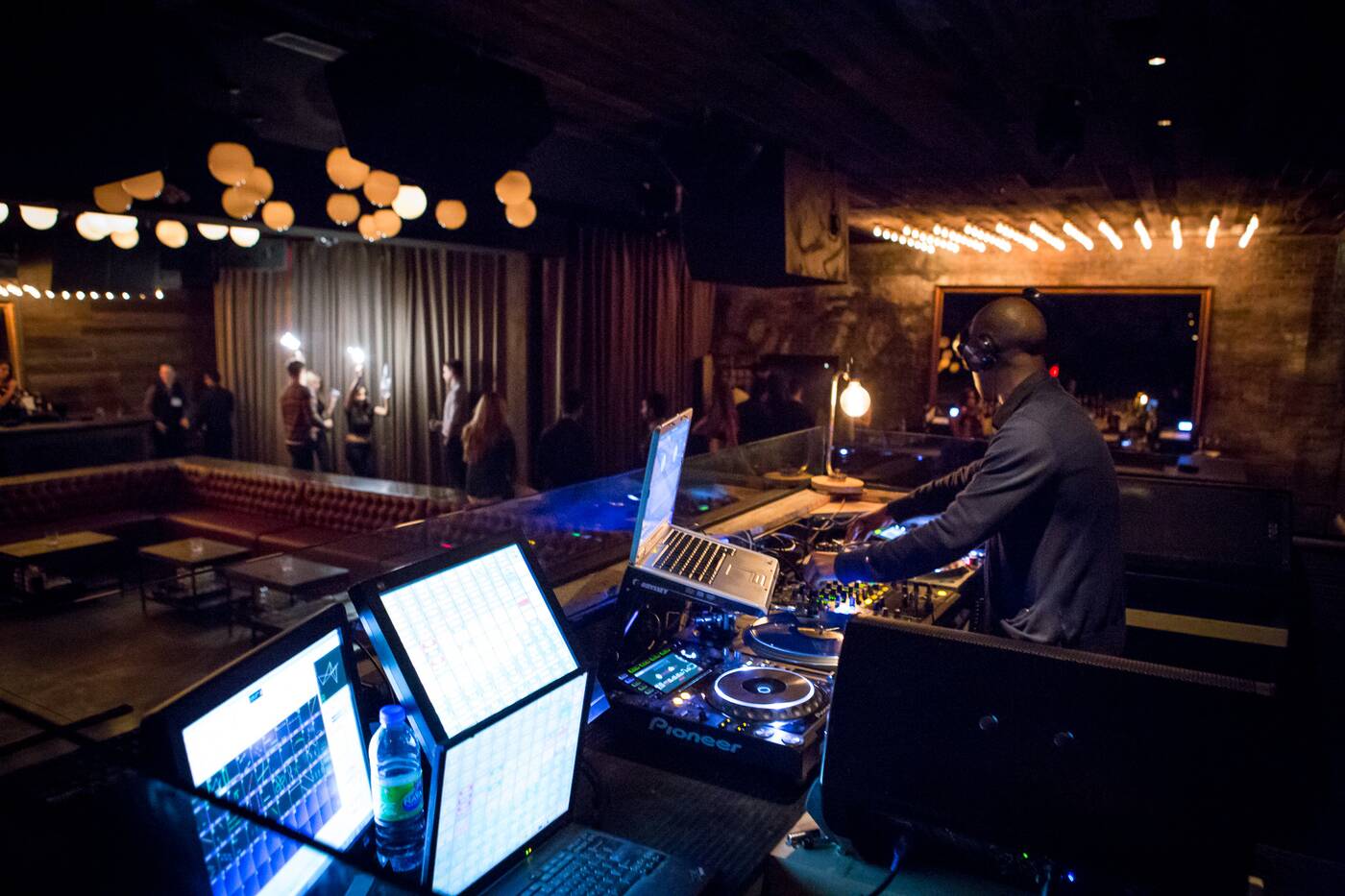
Toronto nightclubs need to stop asking about your gender
For some Toronto nightclubs like EFS, Cube, and the new talk of the town, Toybox, getting on the guestlist can be key to having a good night.
Being on the guestlist means that you’re guaranteed entry (sometimes with parameters like showing up by a certain time or dressing within the specific dress code) but overall, it’s the way to cut down on standing in line and maximize your time getting down on the dance floor.
Typically, being added to the guestlist involves filling out a form on the club's web site. For Toronto nightclub Everleigh and many more like it, the form includes your name, date of birth, and number of guests.
But for other clubs like Cabana Pool Bar, Rebel and more, the form also asks how many people in the group are female and how many are male.

Clubgoers waiting outside Rebel Nightclub in the Port Lands. Photo by Jesse Milns.
Why is knowing the gender demographics of guestlist hopefuls so important?
“We do this to provide all attendees the most accessible, safe and enjoyable experience possible,” says a representative for INK Entertainment (the team behind Rebel, Cube and Toybox).
“We are proud to support and encourage equal gender attendance and host regular promotions throughout the year that cater to both men and women.”
If supporting equal gender attendance and providing safe experiences are the goal, asking for demographic information may not be the answer. Simply gathering gender data and using that as a basis for entry is oversimplifying.

Dancing the night away at Cure Nightclub in the Entertainment District. Photo by Hector Vasquez.
As well, the binary options these guestlist forms give attendees (male and female are the only options) exclude nonbinary and gender nonconforming clubgoers, and the outdated notion that equal gender attendance makes for the best type of club night rests on heterosexist and incorrect assumptions that club attendees are just there to hook up.
“Any business that asks customers to identify as one of two genders is asking for trouble under the Ontario Human Rights Code, which prohibits discrimination on the basis of sex, gender identity, or gender expression.
The binary choice is itself exclusionary. And, even if asking the question isn’t a problem, what the business does with the answer might be,” says Adam Goldenberg, a lawyer with McCarthy Tetrault LLP in Toronto focusing on commercial litigation and public law.

The scene inside Orchid Nightclub in the Entertainment District. Photo by Jesse Milns.
“If a nightclub decides whether to put someone on the list based on the number of men or women in their party, that’s plainly discriminatory. The question is whether it’s discrimination that violates the Human Rights Code. The answer might well be ‘no’.”
“This isn’t all that different in practice from a “door policy” that seeks to achieve gender balance. There’s also legal precedent for allowing nightclubs to charge men higher cover than women. But the implicit exclusion of gender non-binary customers is likely a no-go.”
But if clubs stop regulating the gender makeup of their guests, how can they ensure an accessible and safe space?
Noise Against Sexual Assault, a Toronto-based initiative has been working on exactly that for the past few years, hosting events and providing information and resources on creating safe spaces for the Toronto music and nightlife community.

The DJ trying to get the party started at EFS on King West. Photo by Jesse Milns.
Dandelion Initiative, a nonprofit created by Viktoria Belle, does community-driven bar training to inform and empower staff into creating safe space at their establishment, and the Good Night Out Campaign does similar training.
As for creating enjoyable experiences, that’s up to the DJ.
Jesse Milns at Rebel
Latest Videos
Latest Videos
Join the conversation Load comments







